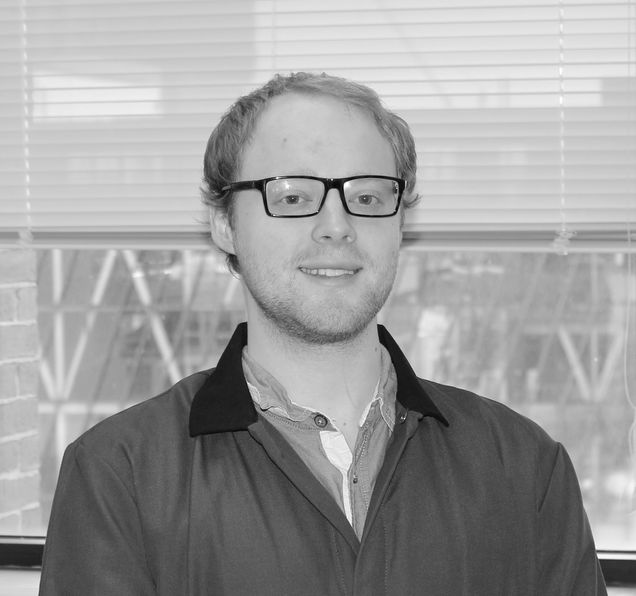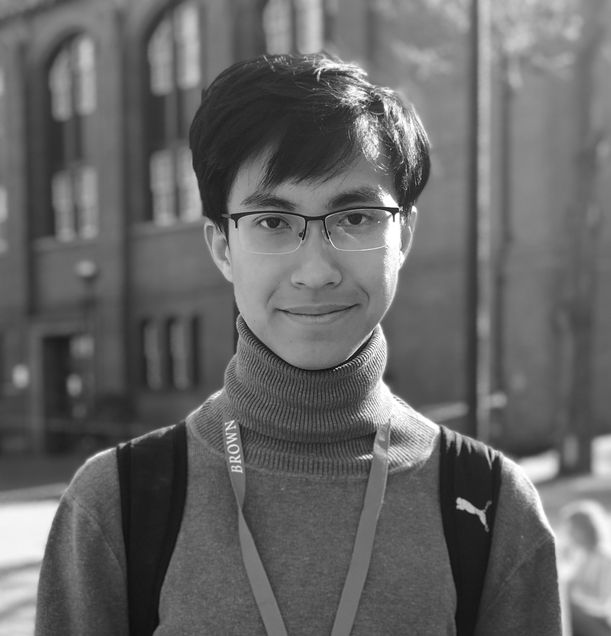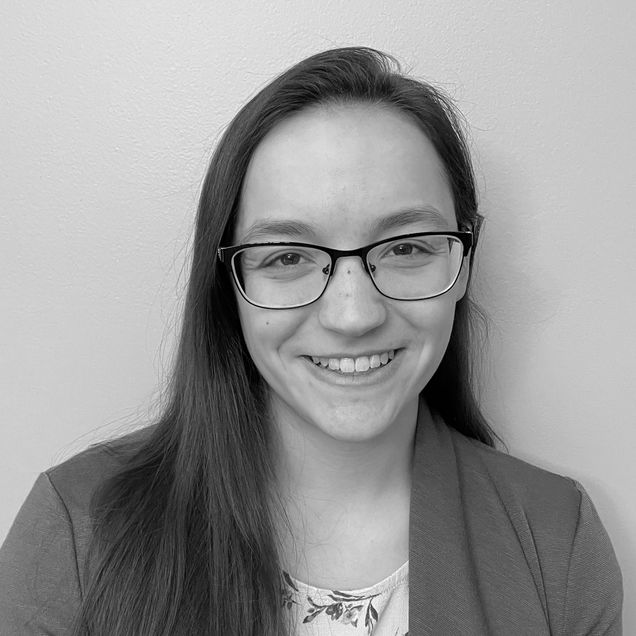Tomorrow’s Problem Solvers
Convergent Research Fellows
The College’s commitment to convergent research extends beyond hiring faculty who can make important contributions to improving society. Also important to research are the contributions of graduate students, so the College has begun offering convergent-themed fellowships to PhD students who are deemed to be most highly aligned with the college’s cross-disciplinary research strengths.
Associate Dean for Research and Faculty Development Elise Morgan says, “We believe the convergent fellowship recipients will be future leaders in tackling complex problems that have so far evaded solutions.”
The first group of five convergent research fellows are now working on a range of projects in several of the College’s laboratories.
 Wyatt Becicka earned his bachelor’s and master’s degrees in biomedical engineering from Case Western Reserve University. In his PhD rotations at ENG so far, he’s worked on synthetic biology projects, including the development of cellular cancer immunotherapies. “I have been very impressed with how many projects and ideas are shared among groups at BU,” he says.
Wyatt Becicka earned his bachelor’s and master’s degrees in biomedical engineering from Case Western Reserve University. In his PhD rotations at ENG so far, he’s worked on synthetic biology projects, including the development of cellular cancer immunotherapies. “I have been very impressed with how many projects and ideas are shared among groups at BU,” he says.
As a long-term goal, Becicka says, “I hope to incorporate expertise in engineering, immunology, and chemistry to better harness the immune system as a tool for improving medical care.”
 Guorong Hu earned a bachelor’s degree in electronic information engineering from Jilin University in China, and a master’s degree in electrical and computer engineering from the University of Michigan. He is working with Assistant Professor Lei Tian (ECE, BME) as well as Professor David Boas (BME, ECE) and Professor Ian Davison (Biology) on computational miniature mesoscopes. Based on fluorescent imaging, this type of device can be worn by freely moving animals, allowing researchers to collect biological data during ordinary behavior.
Guorong Hu earned a bachelor’s degree in electronic information engineering from Jilin University in China, and a master’s degree in electrical and computer engineering from the University of Michigan. He is working with Assistant Professor Lei Tian (ECE, BME) as well as Professor David Boas (BME, ECE) and Professor Ian Davison (Biology) on computational miniature mesoscopes. Based on fluorescent imaging, this type of device can be worn by freely moving animals, allowing researchers to collect biological data during ordinary behavior.
“The skills I learned in electrical engineering, such as signal processing and optics, and in biomedical engineering, such as fluorescent microscopy, combine smoothly in this work,” Hu says. “By the time I earn my PhD, I hope this device will answer a wide range of questions about distributed cortical function.”
 Ruangrawee Kitichotkul earned a bachelor’s and a master’s in electrical engineering from Stanford University. He is working on improving image reconstruction in particle beam microscopy with Professor Vivek Goyal (ECE) and other members of BU’s Signal Transformation and Information Representation (STIR) group.
Ruangrawee Kitichotkul earned a bachelor’s and a master’s in electrical engineering from Stanford University. He is working on improving image reconstruction in particle beam microscopy with Professor Vivek Goyal (ECE) and other members of BU’s Signal Transformation and Information Representation (STIR) group.
Eventually, Kitichotkul says, “I hope that my research is used in real-world products with positive social impacts, whether automobile safety sensors or various medical imaging modalities. For example, reducing acquisition time in MRI while maintaining the image quality could reduce the time and cost and make MRI scans more accessible.”
 Zelin Miao earned a bachelor’s degree in chemistry from Central South University in China and a master’s degree in chemistry from University of Southern California, Los Angeles. He is working with a team of BU chemists, physicists, and materials science engineers is studying how to turn a molecule into a tiny semiconductor.
Zelin Miao earned a bachelor’s degree in chemistry from Central South University in China and a master’s degree in chemistry from University of Southern California, Los Angeles. He is working with a team of BU chemists, physicists, and materials science engineers is studying how to turn a molecule into a tiny semiconductor.
“I strongly value the research environment created by BU that emphasizes collaborations between faculties and departments,” says Miao. “And I feel extremely fortunate to have joined a lab where people can learn and reap tremendous benefits from each other, as we come from different departments and has diverse backgrounds.”
 Rebecca Shannon earned her bachelor’s and master’s degrees in mechanical engineering from Western New England University. She is working with Associate Professor Sheryl Grace (ME) on a study of the breakup of rain drops when they interact with a shock wave from a hypersonic vehicle. “My background in heat transfer and energy storage have translated well to fluid dynamics,” she says. “I have enjoyed learning more about aerodynamics, and I’m able to perform significantly more complex computations using the BU shared-computing cluster than I could on a typical desktop.”
Rebecca Shannon earned her bachelor’s and master’s degrees in mechanical engineering from Western New England University. She is working with Associate Professor Sheryl Grace (ME) on a study of the breakup of rain drops when they interact with a shock wave from a hypersonic vehicle. “My background in heat transfer and energy storage have translated well to fluid dynamics,” she says. “I have enjoyed learning more about aerodynamics, and I’m able to perform significantly more complex computations using the BU shared-computing cluster than I could on a typical desktop.”
“I hope to continue to make contributions to my field that will help the world run more efficiently and safely,” Shannon says. “And I want to help teach the next generation of students and share in their interesting ideas and enthusiasm for technological advancement.”
